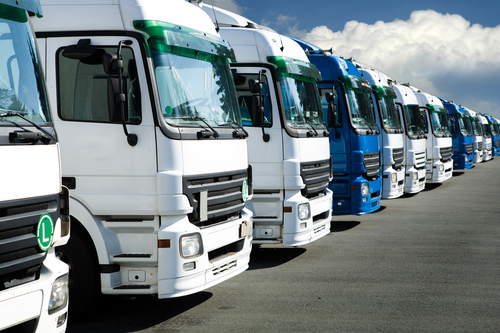COP26 nations get behind to Dutch plan to clean up road transport


Some 14 countries and numerous companies, including Ikea, Unilever, Siemens and Amazon, have signed up to a Dutch initiative to phase out the use of greenhouse gas producing diesel trucks and buses by 2040.
All new buses and trucks in the participating countries will have to run on clean energy from that year, under the terms of the deal struck at the COP26 climate summit in Glasgow.
With trucks and buses having a life cycle of around 10 years, the agreement provides ‘a good start’ for the worldwide goal of zero transport emissions by 2050, the infrastructure ministry said.
Apart from the Netherlands, Austria, Canada, Chile, Denmark, Finland, Luxemburg, New Zealand, Norway, Scotland, Turkey, Uruguay, the United Kingdom and Switzerland agreed to the deal. However, Belgium, Germany and France did not.
In the Netherlands the government plans to to tackle transport pollution, which is responsible for one-third of CO2 emissions and some 70% of nitrogen-based pollution worldwide, by bringing in subsidies for electric or hydrogen powered vehicles.
That could help many transport operators who are still wary because of the large investment a clean fleet would involve, caretaker junior infrastructure minister Steven van Weyenberg said.
Vehicle manufacturers would also have to co-operate to ensure a good choice of eco-friendly trucks, he said, pointing out that the Netherlands ‘is good at building emission-free buses and trucks’.
‘We have agreed to have all road transport cleaned up by 2050. Cooperation with other countries is important so the market can develop faster. I call on all other countries to join this initiative,’ Van Weyenberg said.
Environmental organisation have welcomed the agreement. Director of Natuur & Milieu Marjolein Demmers told industry journal Wegvervoer that the days of high-polluting road transport are numbered.
‘This plan sends a clear signal to the transport sector: the future is in zero-emission batteries and hydrogen power, not combustion engines. No biofuels or e-fuels in the tank, the countries are very clear about that,’ Demmers said.
Wednesday’s accord comes in the wake of a Dutch u-turn on public financing for oil, gas and coal projects abroad by the end of next year, which the United States, Canada and 18 other countries committed themselves to stopping.
The government said that signing up to the pledge would be ‘controversial’ and therefore outside the remit of a caretaker government.
Thank you for donating to DutchNews.nl.
We could not provide the Dutch News service, and keep it free of charge, without the generous support of our readers. Your donations allow us to report on issues you tell us matter, and provide you with a summary of the most important Dutch news each day.
Make a donation